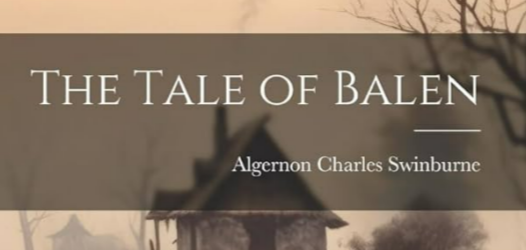Chapter I‑The tale of Balen
byChapter I – The tale of Balen opens in a season where hawthorn trees bloom and sunlight settles like a blessing on the land, casting England’s countryside in hues of green and gold. This is not merely a backdrop of beauty, but a symbol of Balen’s youthful promise as he journeys from the rugged lands of the North, where the rivers Tyne and Tees carve strength into men. Though the landscape softens as he travels southward, Balen’s bold spirit remains intact—he moves with purpose, eager to shape his destiny among the legendary figures of King Arthur’s court.
The contrast between North and South is not just of terrain but of temperament. Balen carries with him the grit and resilience honed by cold winds and wild moors, entering a realm where manners are polished and honor is weighed in subtler terms. To those at Camelot, he is both a curiosity and a threat, his strength admired but his presence unsettling—a reminder that greatness often arrives without warning and from unexpected places.
Despite this tension, Balen’s courage earns him a place among the elite. King Arthur, struck by the knight’s resolve and straightforward valor, welcomes him with favor, setting in motion the early flickers of glory. Yet, such rapid ascent often breeds quiet resentment, and whispers of suspicion soon drift among courtiers who see in Balen not only a rival but a disruption to their own fragile standing.
The celebration of Balen’s success is short-lived. When insult is thrown by a noble kinsman of the king—whether out of provocation or prejudice—it strikes directly at Balen’s sense of northern pride. His reaction, swift and lethal, transforms a festive court into a hall of judgment, where admiration turns into caution, and loyalty is weighed against law.
Though the slain man was not blameless, Balen is held accountable. His defiance, even if rooted in defense of honor, has breached the decorum of Camelot, forcing the king’s hand. The same hand that welcomed him now must sign his sentence, and Balen, once the court’s rising star, finds himself confined to a cold stone cell, isolated by action and consequence.
In that stillness, Balen begins to reckon not only with fate, but with himself. The pride that guided him to glory has also led him to silence, and the path forward becomes less certain. Yet there is no regret in his heart—only a deeper conviction that honor, once claimed, must be carried, even if it weighs heavily.
What makes this chapter resonate is the poetic balance between promise and loss. Balen is no stranger to hardship, and this early fall from grace does not break him—it shapes him. The tension between his inner strength and the world’s expectations sets the tone for a journey that will not only test his might but reveal the true weight of valor.
Historically, stories of Arthurian knights were designed not just to entertain, but to explore moral complexity. Balen embodies this tradition with depth; his flaws are not vices, but extensions of his virtues—fierce loyalty, pride in origin, and a refusal to accept injustice quietly. In the medieval code, these were noble traits, yet they could just as easily become a man’s undoing.
Readers today may find in Balen a mirror for the tension between identity and belonging. He does not compromise to fit into Camelot’s court but instead tries to carve out space for the strength that raised him. This conflict between assimilation and authenticity is timeless and fuels the richness of his character arc.
The narrative closes this chapter with a mood of reflective stillness. Though the winds of spring still blow, and flowers bloom beyond prison walls, Balen’s journey has already shifted. He entered Camelot seeking honor and found its price; now, he must carry both the sword and the sorrow that come with being true to one’s self.

